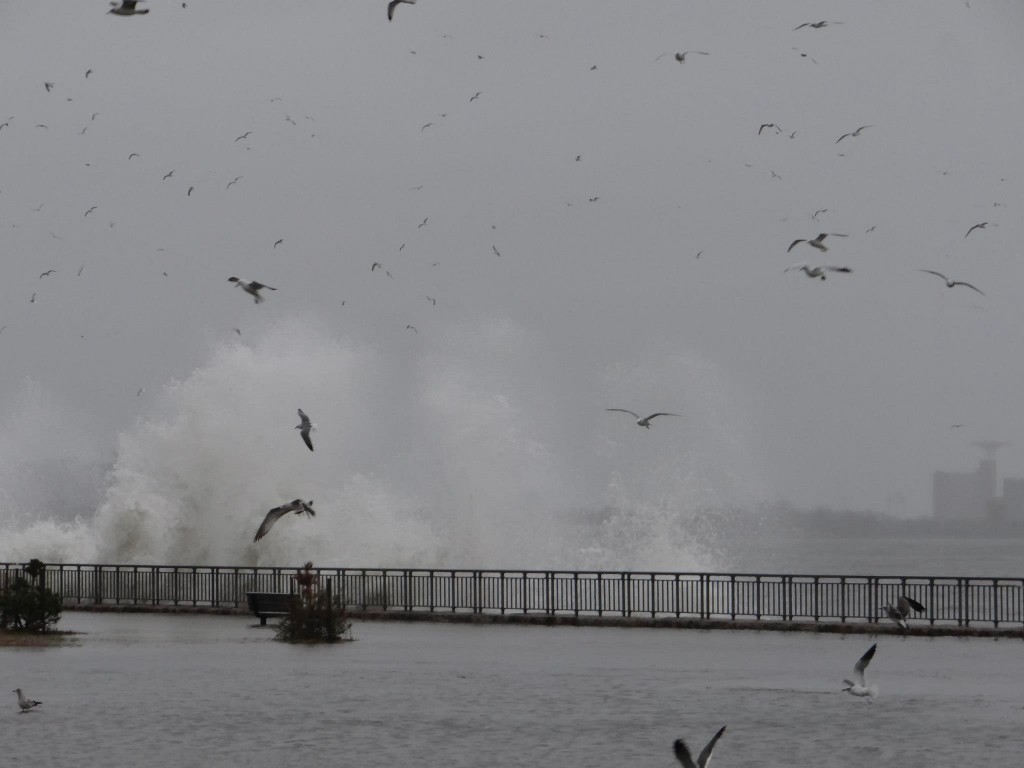After Hurricane Sandy devastated much of South Queens, leaving residents to take out second mortgages or dip into retirement savings to pay for houses that were completely destroyed, Queens homeowners are more than a little worried that federal legislation passed in 2012 could result in unbearable increases in flood insurance premiums. The Senate passed a bill last month that would delay that spike, but the House delayed casting votes on their version of the legislation this week. Photo by Richard York
While the U.S. House of Representatives was expected to hold a vote on a flood insurance bill Thursday, it was pushed off, and the House’s legislation is drawing concerns from some that it may not do enough to prevent the major spikes in flood insurance premiums that are expected to occur under the Biggert-Waters Act of 2012.
House Majority Leader Eric Cantor (R-VA) said Wednesday that the vote would likely not happen Thursday as expected following some Democratic lawmakers’ statements that the bill could still result in massive increases in flood insurance premiums for homeowners, many of whom have already been financially struggling after having to rebuild from Hurricane Sandy.
“‘This measure remains a work in progress,’” U.S. Rep. Maxine Waters (D-Calif.), one of the two main sponsors of the Biggert-Waters Act in 2012, told New Orleans’ Times-Picayune Wednesday. “‘We continue to work in good faith with Republican leadership to address a number of technical and substantive issues related to the legislation, with the ultimate goal of correcting the unintended consequences of the Biggert-Waters Flood Insurance Reform Act. This could not be done overnight.”
The Biggert-Waters Act phases out some subsidized flood insurance rates and allows for premium rate increases of about 20 to 26 percent each year until properties reach actuarial status.
While supporters of the Biggert-Waters Act have said the bill was meant to make a debt-ridden National Flood Insurance Program more fiscally stable, as it had been hemorrhaging money, homeowners in Queens and other coastal communities across the city and country have said the rates would force individuals from their homes because they would not be able to afford the increases – particularly after so many shelled out significant amounts of money to rebuild following Hurricane Sandy. Homeowners throughout the country have reported drastic increases, including premiums skyrocketing from $4,500 each year to $45,000 annually.
The Senate passed its Homeowner Flood Insurance Affordability Act last month, which would delay the increase in premiums for four years while the Federal Emergency Management Agency conducts an affordability study.
The House’s version of the bill, as it stands now, would limit the annual increases to a 15 percent average – which some lawmakers said could still end in drastic increases for some property owners.
But U.S. Rep. Michael Grimm (R-Staten Island), one of the House bill’s main sponsors, said the legislation would lead to flood insurance policyholders being “spared from an avalanche of foreclosures and astronomical premium increases.
“As our community continues to recover from Superstorm Sandy, this bill will provide much needed relief to the families struggling to rebuild their homes, their finances, and their lives,” he continued.
 By Anna Gustafson
By Anna Gustafson

No comments:
Post a Comment